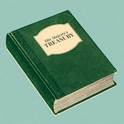Reality has a way of destroying elegant theories. This recession has demonstrated the vapidity of most neoclassical economics. It is hard to predict the collapse of the world economy and the destruction of a quarter of its wealth if you start with the assumption that people are rational, utility maximising and omniscient. Back before the bust, even distinguished economists were so infatuated with the Efficient Market theory that they argued bubbles were impossible. If markets always get prices right, bubbles can’t exist. One published a book claiming that the famous Dutch tulip bubble was no bubble at all but rather a rational response to supply and demand.
How did economists get it so wrong? That’s the title of Paul Krugman’s article in this week’s Sunday New York Times magazine and his short explanation is that they forgot Keynes and developed an amour fou for the free market. From Adam Smith until the 1930s, most economists believed that markets were self-regulating. They didn’t look self regulating in the 1930s, with the economy stuck in high unemployment and no prospect of escaping it. Keynes realized that lack of effective demand and unemployment fed on each other, trapping the economy in a low equilibrium state. His solution was for government spending to take up the slack and it seems he was right. It took World War II and the greatest government deficits ever seen to end the Great Depression.
But in the 70s, in the face of stagflation, Keynesianism became unfashionable. Milton Freidman and monetarism attacked government intervention, claiming that monetary policy alone could smooth out the business cycle. The free market again became deified. To many economists Keynes became a dirty word. The Rational Expectations crowd “proved” that any government attempt to guide the economy would be self-defeating. The Efficient Markets theorists told us financial markets always price assets correctly. The party on Wall Street rocked on.
Krugman is a wise man as well as a talented economist but his article ultimately disappoints. He is both too easy on his profession and too hard. For one thing, not all economists got it wrong: only the mainstream neoclassicals did. Hyman Minsky, who remembered Keynes’ emphasis on uncertainty, saw quite clearly that booms and busts are endogenous to capitalism, that optimism and easy lending fuel the boom, that fear of the inability to repay loans causes the bust. Stiglitz’ work on Moral Hazard, Akerlof’s asymmetric information all are vital in understanding how we got into this mess.
Barry Eichengreen, an economist almost as distinguished as Krugman, wrote a better essay on the same topic. In it he says, “the problem lay not so much with the poverty of the underlying theory as with selective reading of it—a selective reading shaped by the social milieu. That social milieu encouraged financial decision makers to cherry-pick the theories that supported excessive risk taking. . . . The consequence was that scholarship that warned of potential disaster was ignored”. Krugman claims “the economics profession went astray because economists, as a group, mistook beauty, clad in impressive-looking mathematics, for truth.” Eichengreen is less naïve. “Generous speaker’s fees were thus available to those prepared to drink the Kool-Aid.”
Alfred Marshall defined economics as the “study of mankind in the ordinary business of life.” What could be more useful? What could be more vital? For the past 60 years, orthodox economics has evolved into a hypermathematized branch of free market theology. Its goals shifted from explaining the world as it actually is to maintaining Euclidian rigour while defending the interests of the powerful. Perhaps this crisis will force economists to pay attention the real world instead of merely deducing inaccurate principals from absurd axioms. Eichengreen is optimistic. He observes that the top young economists today are empiricists, much more interested in observation than in logical deduction. Let’s hope so. Economics needs to let the real world in, to stop staring at its own navel if it is to be useful.
Is Paul Krugman off the mark?
September 07, 2009










